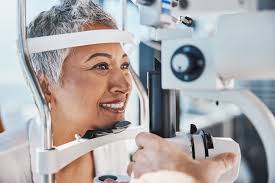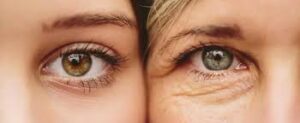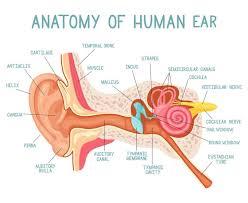The importance of eye health as you age

Our eyes are one of our most vital organs, yet they’re often overlooked when it comes to preventive healthcare. Many people don’t think about eye health until they notice changes in their vision, but by then, underlying conditions may already have progressed. As we age, our eyes undergo natural changes that can affect everything from how clearly we see to how safely we move through the world. Maintaining healthy vision is not only about comfort and clarity – it’s also about protecting independence, preventing accidents, and safeguarding overall well-being
Understanding age-related changes in vision
It’s normal for vision to change over time. Most people begin to notice small shifts in their 40s, such as difficulty reading fine print, which is a result of presbyopia (age-related loss of near focusing ability). While reading glasses can address this, other age-related conditions are more complex and potentially serious:
- Cataracts: Clouding of the lens, leading to blurred or dim vision. Cataracts are extremely common with age, but they can often be treated effectively with surgery
- Glaucoma: A group of conditions that damage the optic nerve, usually due to increased eye pressure. Glaucoma often develops silently and can lead to irreversible vision loss if not detected early
- Age-related macular degeneration (AMD): A progressive disease affecting the macula, the part of the retina responsible for central vision. AMD can make reading, driving, or recognising faces difficult
- Diabetic retinopathy: High blood sugar levels can damage blood vessels in the retina, leading to vision problems or blindness. This highlights the connection between systemic health and eye health
While these conditions may sound daunting, many can be prevented, slowed, or treated effectively with early detection and proper care
Why eye health matters for healthy ageing
Good eyesight is about more than seeing clearly – it directly affects quality of life.
- Independence: Vision plays a central role in daily activities like driving, cooking, reading, and navigating unfamiliar places. When eyesight declines, independence can be compromised, which in turn affects mental and emotional well-being
- Safety: Poor vision increases the risk of accidents, particularly falls. According to the World Health Organisation, falls are the second leading cause of accidental injury deaths worldwide, and vision impairment is a key risk factor
- Social and emotional health: Being able to recognise faces, watch films, or read books helps maintain social connections and cognitive engagement. Vision loss, by contrast, can contribute to isolation, anxiety, and depression
- Overall health monitoring: Comprehensive eye exams don’t just detect eye diseases. They can also reveal early signs of conditions like diabetes, hypertension, or even neurological disorders. This makes regular eye care an essential part of preventive medicine
Protecting your vision as you age
The good news is that many age-related vision problems are preventable or manageable with the right lifestyle habits and medical care. Here are some key strategies to maintain eye health throughout life:
- Schedule regular eye exams
Eye exams should not be reserved for when you notice a problem. Many serious conditions, such as glaucoma, develop with no apparent symptoms in the early stages. Adults over 40 should have comprehensive eye exams every 2–4 years, increasing in frequency after age 55
- Nourish your eyes
A healthy diet can go a long way toward protecting vision. Nutrients such as omega-3 fatty acids, lutein, zeaxanthin, vitamin C, vitamin E, and zinc have been shown to support eye health. Foods rich in these include leafy greens, carrots, citrus fruits, fish like salmon and tuna, nuts, and seeds. Staying well-hydrated is also essential, as dry eyes become more common with age
- Protect against UV damage
Prolonged exposure to ultraviolet (UV) light can increase the risk of cataracts and other eye damage. Wearing sunglasses that block 100% of UVA and UVB rays — even on cloudy days — is a simple but powerful way to protect your eyes
- Manage chronic conditions
Since conditions like diabetes and hypertension can directly affect the eyes, managing overall health is essential. Regular medical check-ups, medication adherence, and lifestyle choices such as maintaining a balanced diet and regular exercise play a crucial role in protecting vision
- Adopt healthy daily habits
- Stop smoking: Smoking significantly increases the risk of cataracts, AMD, and damage to the optic nerve
- Limit screen strain: Follow the 20-20-20 rule when using digital devices — every 20 minutes, look at something 20 feet away for 20 seconds
- Stay active: Exercise improves blood circulation, which can help maintain healthy retinal and optic nerve function
- Use good lighting: Especially when reading or doing close work, proper lighting reduces eye strain
Warning signs you shouldn’t ignore
Even if you have regular check-ups, sudden changes in vision can signal a serious problem that needs urgent medical attention. Contact an eye specialist right away if you notice:
- Sudden or partial loss of vision in one or both eyes
- Flashes of light or new floating spots in your vision
- A dark curtain or shadow across part of your sight
- Eye pain, redness, or swelling that doesn’t improve
- Double vision or sudden blurriness
- Halos around lights, especially at night
These symptoms could indicate conditions such as retinal detachment, acute glaucoma, or other emergencies where quick treatment can save vision
 Eye health isn’t something to take for granted, especially as we grow older. Vision plays a central role in how we interact with the world, how safe and independent we feel, and how connected we remain to the people and activities we love. By prioritising regular eye exams, maintaining a nutrient-rich diet, protecting against UV rays, and managing chronic health conditions, you can significantly reduce your risk of vision loss
Eye health isn’t something to take for granted, especially as we grow older. Vision plays a central role in how we interact with the world, how safe and independent we feel, and how connected we remain to the people and activities we love. By prioritising regular eye exams, maintaining a nutrient-rich diet, protecting against UV rays, and managing chronic health conditions, you can significantly reduce your risk of vision loss
Clear vision supports not only your physical health but also your mental and emotional well-being. The sooner you adopt protective habits and make eye health a priority, the greater your chances of enjoying a lifetime of healthy, comfortable sight
Leave a reply
You must be logged in to post a comment.







